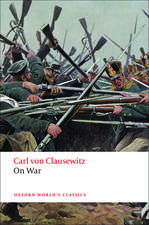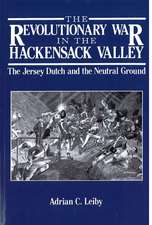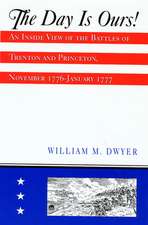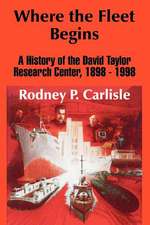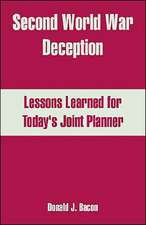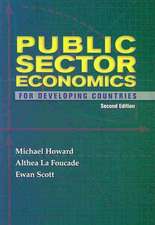War and the Liberal Conscience
Autor Professor Michael Howarden Limba Engleză Paperback – 1978
For centuries liberal minded men have been horrified by the pain and waste of war. From Erasmus, who saw war above all as a product of stupidity, to the Marxists who see it as a matter of class conflict, they have produced social theories to account for its occurrence and have tried to devise means to end it.
Their prescriptions have been various. The central view of the Enlightenment was that wars would end when the ambitions of princes could be curbed by the sanity of ordinary men. At first the commercial classes seemed to be the new force that would produce this happy state, but by the end of the nineteenth century they themselves (the ‘capitalists’) were being stigmatized as the instigators of war.
Similarly, the nineteenth-century liberals at first believed that the rise of the new independent nation-states of Europe would lead to a permanent peace as the wishes of the masses (naturally peace-loving) were able to express themselves. Again, the supposed agents of peace were soon seen as a prime cause of wars.
Despite these contradictions there have been certain continuing themes in the search for a means to end wars, and one of the most enlightening things in this book is they way in which it is possible to see how these themes recur in subtly different forms in different periods of history. Professor Howard traces them from the renaissance to our own time, through the social, political and intellectual groups that gave birth to them.
Throughout the whole story runs the continuing contrast between those who hoped to find a single cause for the disease, leading to a lasting cure, and those who understood that, in Professor Howard’s words, ‘this was a task which needs to be tackled afresh every day of our lives’...
Their prescriptions have been various. The central view of the Enlightenment was that wars would end when the ambitions of princes could be curbed by the sanity of ordinary men. At first the commercial classes seemed to be the new force that would produce this happy state, but by the end of the nineteenth century they themselves (the ‘capitalists’) were being stigmatized as the instigators of war.
Similarly, the nineteenth-century liberals at first believed that the rise of the new independent nation-states of Europe would lead to a permanent peace as the wishes of the masses (naturally peace-loving) were able to express themselves. Again, the supposed agents of peace were soon seen as a prime cause of wars.
Despite these contradictions there have been certain continuing themes in the search for a means to end wars, and one of the most enlightening things in this book is they way in which it is possible to see how these themes recur in subtly different forms in different periods of history. Professor Howard traces them from the renaissance to our own time, through the social, political and intellectual groups that gave birth to them.
Throughout the whole story runs the continuing contrast between those who hoped to find a single cause for the disease, leading to a lasting cure, and those who understood that, in Professor Howard’s words, ‘this was a task which needs to be tackled afresh every day of our lives’...
Preț: 259.68 lei
Nou
Puncte Express: 390
Preț estimativ în valută:
49.70€ • 51.34$ • 41.36£
49.70€ • 51.34$ • 41.36£
Carte tipărită la comandă
Livrare economică 25 martie-08 aprilie
Preluare comenzi: 021 569.72.76
Specificații
ISBN-13: 9780813511979
ISBN-10: 0813511976
Pagini: 143
Dimensiuni: 140 x 216 x 15 mm
Greutate: 0.18 kg
Ediția:None
Editura: Rutgers University Press
Colecția Rutgers University Press
ISBN-10: 0813511976
Pagini: 143
Dimensiuni: 140 x 216 x 15 mm
Greutate: 0.18 kg
Ediția:None
Editura: Rutgers University Press
Colecția Rutgers University Press
Notă biografică
Michael Howard is now Professor of the History of War at Oxford University, having formerly held the Chair of War Studies at King’s College, London. He has written extensively on questions of war and peace over the past twenty years: his most recent works include a translation (With Peter Paret) of Clausewitz On War, and a short survey of War in European History to which this work can be seen in some sense as a companion volume. He is Vice-Chairman both of the Royal Institute for International Affairs and of the International Institute for Strategic Studies, and Vice-President of the Council on Christian Approaches to Arms Control and Disarmament.
Descriere
For centuries liberal minded men have been horrified by the pain and waste of war. From Erasmus, who saw war above all as a product of stupidity, to the Marxists who see it as a matter of class conflict, they have produced social theories to account for its occurrence and have tried to devise means to end it.
Their prescriptions have been various. The central view of the Enlightenment was that wars would end when the ambitions of princes could be curbed by the sanity of ordinary men. At first the commercial classes seemed to be the new force that would produce this happy state, but by the end of the nineteenth century they themselves (the ‘capitalists’) were being stigmatized as the instigators of war.
Similarly, the nineteenth-century liberals at first believed that the rise of the new independent nation-states of Europe would lead to a permanent peace as the wishes of the masses (naturally peace-loving) were able to express themselves. Again, the supposed agents of peace were soon seen as a prime cause of wars.
Despite these contradictions there have been certain continuing themes in the search for a means to end wars, and one of the most enlightening things in this book is they way in which it is possible to see how these themes recur in subtly different forms in different periods of history. Professor Howard traces them from the renaissance to our own time, through the social, political and intellectual groups that gave birth to them.
Throughout the whole story runs the continuing contrast between those who hoped to find a single cause for the disease, leading to a lasting cure, and those who understood that, in Professor Howard’s words, ‘this was a task which needs to be tackled afresh every day of our lives’.
Similarly, the nineteenth-century liberals at first believed that the rise of the new independent nation-states of Europe would lead to a permanent peace as the wishes of the masses (naturally peace-loving) were able to express themselves. Again, the supposed agents of peace were soon seen as a prime cause of wars.
Despite these contradictions there have been certain continuing themes in the search for a means to end wars, and one of the most enlightening things in this book is they way in which it is possible to see how these themes recur in subtly different forms in different periods of history. Professor Howard traces them from the renaissance to our own time, through the social, political and intellectual groups that gave birth to them.
Throughout the whole story runs the continuing contrast between those who hoped to find a single cause for the disease, leading to a lasting cure, and those who understood that, in Professor Howard’s words, ‘this was a task which needs to be tackled afresh every day of our lives’.


